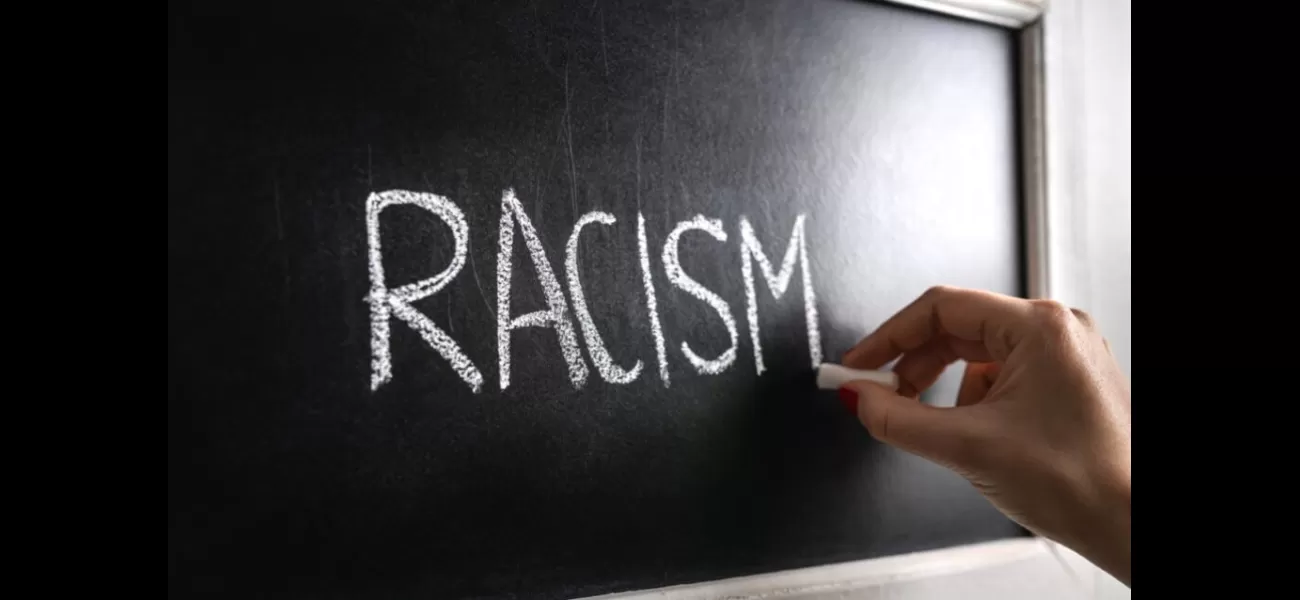"Tracie McMillan explains how white people profit from racism in her mapping project."
"New book by McMillan explores the impact of racist policies on both white and Black communities in America."
April 23rd 2024.

Tracie McMillan's latest release, The White Bonus: Five Families and the Cash Value of Racism in America, has been making waves since its launch. In this thought-provoking book, McMillan delves into the impact of policies that have both aided and hindered white people, while simultaneously punishing Black individuals.
During a recent interview with CNN, McMillan described the concept of the "White bonus" as an estimation of the financial benefits that white individuals receive due to the existence of white supremacy, both in public policies and private practices. She humbly admitted that exploring this topic was a truly eye-opening experience for her.
Despite her own experiences with struggling financially, McMillan acknowledged that she still held advantages that were not accessible to Black people. She shared how her family had been able to create wealth through means that were simply not available to many Black families at the time. As she dug deeper into her own family's history, she couldn't help but wonder if her grandfather would have been as successful had he not been white. Sadly, the answer was no. McMillan's grandfather became a banker during a time when there were only a handful of Black bankers in the entire country. He was also able to purchase a home with a racial covenant, a privilege that was not afforded to Black families.
McMillan went on to discuss how the American middle class serves as a key leverage for white individuals to maintain their advantages. She explained that many middle-class families, who were willing to share their stories with her, were acutely aware of how close they were to falling below the poverty line.
The author also touched upon the issue of "colorblind" government programs, which may seem fair on the surface, but in reality, only benefit white individuals. She cited the example of the G.I. Bill, which was intended to provide educational and financial assistance to war veterans. However, in practice, it was only accessible to white individuals, with only a few people of color being able to benefit from it. McMillan pointed out that this was a prime example of how policies can be written to appear colorblind, but still end up being discriminatory in practice.
Furthermore, McMillan criticized how the whitewashing of American history has done a disservice to the education system. She explained that many white individuals today are unaware of the advantages they have received solely because of their race, as previous generations have purposely hidden this information from them. While the U.S. has been more open about its history of denying opportunities to Black people, the inverse is also true - if one group is being denied something based on their skin color, it means that another group is receiving it by default. McMillan believes that if accurate history were taught in schools, this would be a crucial part of the curriculum.
In conclusion, McMillan's book sheds light on the deep-rooted issues of racism and privilege in America. It serves as a reminder that, despite progress being made, there is still a long way to go in achieving true equality for all.
During a recent interview with CNN, McMillan described the concept of the "White bonus" as an estimation of the financial benefits that white individuals receive due to the existence of white supremacy, both in public policies and private practices. She humbly admitted that exploring this topic was a truly eye-opening experience for her.
Despite her own experiences with struggling financially, McMillan acknowledged that she still held advantages that were not accessible to Black people. She shared how her family had been able to create wealth through means that were simply not available to many Black families at the time. As she dug deeper into her own family's history, she couldn't help but wonder if her grandfather would have been as successful had he not been white. Sadly, the answer was no. McMillan's grandfather became a banker during a time when there were only a handful of Black bankers in the entire country. He was also able to purchase a home with a racial covenant, a privilege that was not afforded to Black families.
McMillan went on to discuss how the American middle class serves as a key leverage for white individuals to maintain their advantages. She explained that many middle-class families, who were willing to share their stories with her, were acutely aware of how close they were to falling below the poverty line.
The author also touched upon the issue of "colorblind" government programs, which may seem fair on the surface, but in reality, only benefit white individuals. She cited the example of the G.I. Bill, which was intended to provide educational and financial assistance to war veterans. However, in practice, it was only accessible to white individuals, with only a few people of color being able to benefit from it. McMillan pointed out that this was a prime example of how policies can be written to appear colorblind, but still end up being discriminatory in practice.
Furthermore, McMillan criticized how the whitewashing of American history has done a disservice to the education system. She explained that many white individuals today are unaware of the advantages they have received solely because of their race, as previous generations have purposely hidden this information from them. While the U.S. has been more open about its history of denying opportunities to Black people, the inverse is also true - if one group is being denied something based on their skin color, it means that another group is receiving it by default. McMillan believes that if accurate history were taught in schools, this would be a crucial part of the curriculum.
In conclusion, McMillan's book sheds light on the deep-rooted issues of racism and privilege in America. It serves as a reminder that, despite progress being made, there is still a long way to go in achieving true equality for all.
[This article has been trending online recently and has been generated with AI. Your feed is customized.]
[Generative AI is experimental.]
0
0
Submit Comment





